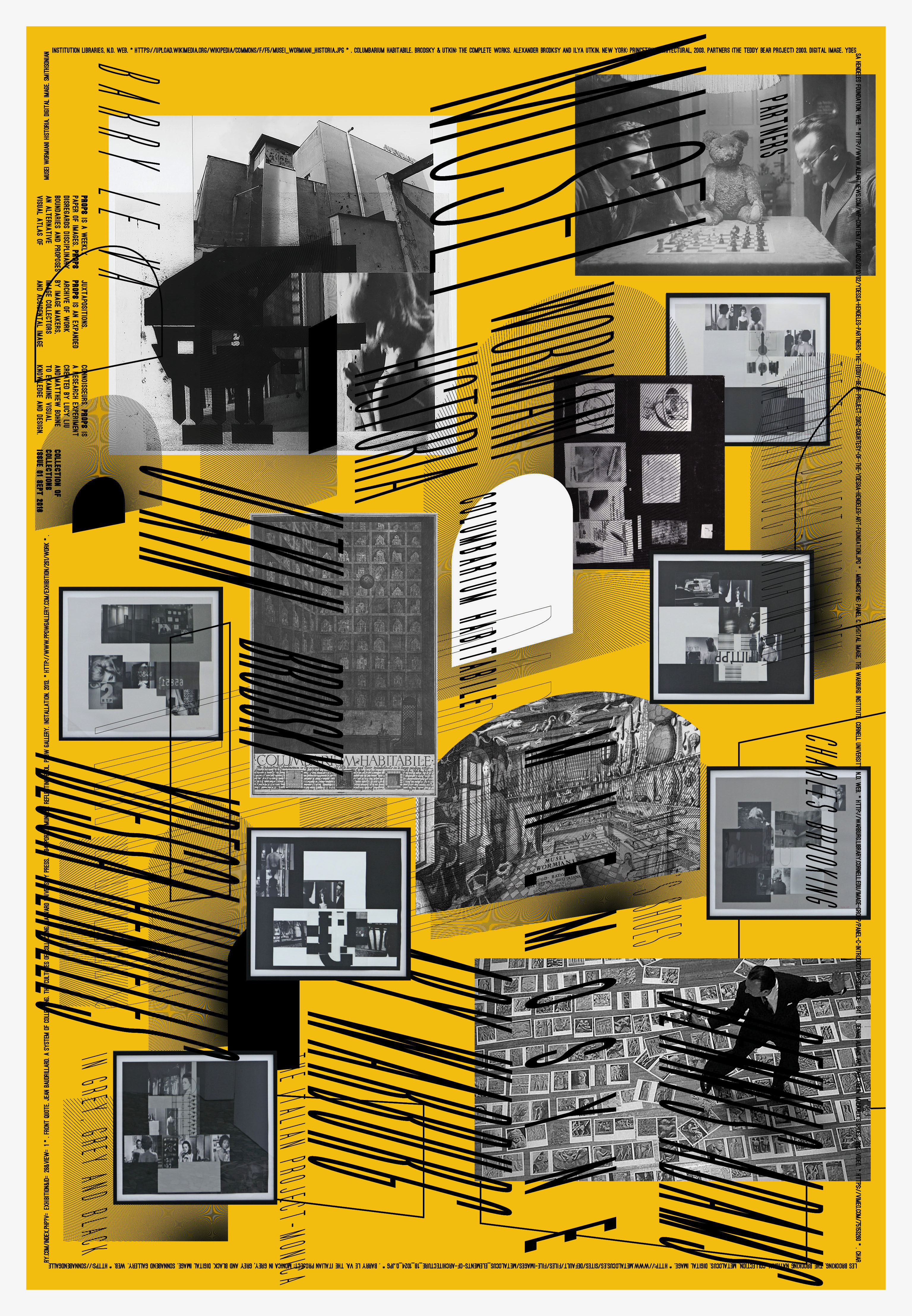

01 COLLECTIONS OF COLLECTIONS
WELCOME, YOU HAVE ARRIVED AT THE ORIGIN STORY OF PROPS PAPER︎︎︎︎︎︎
Version 1 The Press Release
PROPS PAPER was established in September 2016 by Matthew Bohne and Lucy Siyao Liu as an alternative mode of publication in contrast to annuals, manifests and themed architecture and design journals. From 2016 to 2018, PROPS PAPER was published weekly when possible, featuring one contributor’s images and text per issue in the format of one broadsheet newspaper. Since 2018, PROPS PAPER has been published monthly, still keeping with the contributor format and design layout. Past PROPS PAPER contributors have included artists, curators, architects, theorists, lawyers, biologists, cosmologists, physicists, animators, game designers, poets, chefs, poet-chefs, roboticists, friends, lovers, professors, singles, teams, duos…
Version 2 What Had Happened
PROPS PAPER was established in September 2016, and our first issue was published the following month with fleeting thoughts about collecting, tending, reorganizing and storytelling woven between images of Ydessa Hendeles’s teddy bears and Aby Warburg’s Mnemosyne. We implicated portal motifs and images that suggested depth - we were concerned about reinforcing the reciprocal nature of front and back. We wanted to think fast, think present, connect the dots in ad-hoc ways and reach for practices that are uncategorizable. It was 2016, we were in grad school. We felt like the world was ending and there wasn’t enough time to see it all.
Then, our main mode of distribution was flyposting. The first issues seen in hallways and elevators were promptly removed. The following issues were drawn over, taken, and left with notes with “open call??” We left no name, no hyperlink, no prelude, no aftermath. We never had a launch.
PROPS PAPER is agile, PROPS PAPER isn’t beholden to any intellectual institution. PROPS PAPER is cultural, a staple between disciplines, experiences and worlds. PROPS PAPER is text, image, object, vibe. As PROPS PAPER evolves, we want to hold on to that fluidity and openness.
Version 1 The Press Release
PROPS PAPER was established in September 2016 by Matthew Bohne and Lucy Siyao Liu as an alternative mode of publication in contrast to annuals, manifests and themed architecture and design journals. From 2016 to 2018, PROPS PAPER was published weekly when possible, featuring one contributor’s images and text per issue in the format of one broadsheet newspaper. Since 2018, PROPS PAPER has been published monthly, still keeping with the contributor format and design layout. Past PROPS PAPER contributors have included artists, curators, architects, theorists, lawyers, biologists, cosmologists, physicists, animators, game designers, poets, chefs, poet-chefs, roboticists, friends, lovers, professors, singles, teams, duos…
Version 2 What Had Happened
PROPS PAPER was established in September 2016, and our first issue was published the following month with fleeting thoughts about collecting, tending, reorganizing and storytelling woven between images of Ydessa Hendeles’s teddy bears and Aby Warburg’s Mnemosyne. We implicated portal motifs and images that suggested depth - we were concerned about reinforcing the reciprocal nature of front and back. We wanted to think fast, think present, connect the dots in ad-hoc ways and reach for practices that are uncategorizable. It was 2016, we were in grad school. We felt like the world was ending and there wasn’t enough time to see it all.
Then, our main mode of distribution was flyposting. The first issues seen in hallways and elevators were promptly removed. The following issues were drawn over, taken, and left with notes with “open call??” We left no name, no hyperlink, no prelude, no aftermath. We never had a launch.
PROPS PAPER is agile, PROPS PAPER isn’t beholden to any intellectual institution. PROPS PAPER is cultural, a staple between disciplines, experiences and worlds. PROPS PAPER is text, image, object, vibe. As PROPS PAPER evolves, we want to hold on to that fluidity and openness.